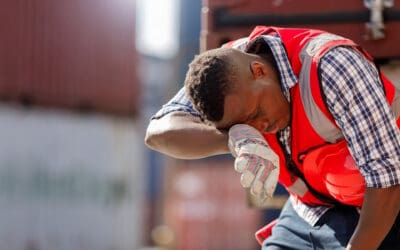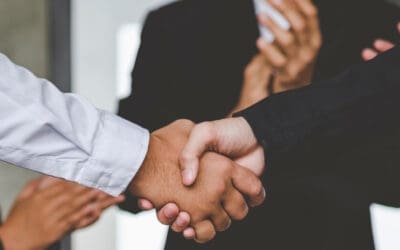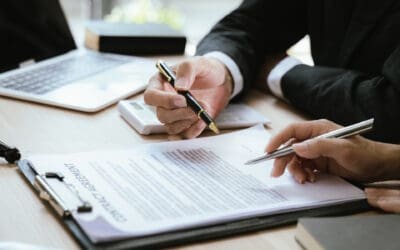Legal Steps to Take After an Injury on the Water
Louisiana’s scenic waterways are ideal for boating, fishing, and outdoor recreation, attracting locals and tourists alike. However, the fun can quickly turn tragic when accidents occur on the water. Boating accidents can result in severe injuries, costly property damage, and intricate legal issues. If you or a loved one has been involved in a boating accident, it’s essential to act quickly to protect your legal rights, understand your options, and pursue the compensation you deserve for medical expenses, lost income, and other damages.
1. Prioritize Safety & Seek Medical Attention
The main priority after a boating accident is the safety and well-being of everyone involved. Check for injuries and account for all passengers and crew members. Move anyone in immediate danger to a safer location, if possible. Call 911 or contact the U.S. Coast Guard for emergency medical assistance as soon as possible.
Seek medical evaluation, as many injuries like concussions, internal trauma, or whiplash may not show symptoms right away but can become serious if left untreated. Prompt medical attention not only ensures proper care but also creates a vital record that could support any future insurance or legal claims.
2. Report the Accident
In Louisiana, it is legally required to report boating accidents that result in injury, loss of life, disappearance, or substantial property damage. These incidents must be reported to the Louisiana Department of Wildlife and Fisheries (LDWF) or the U.S. Coast Guard, depending on where the accident occurred. Failing to report such accidents can result in legal penalties.
Timely and accurate reporting will create an official incident record—an essential piece of evidence for any insurance claims or legal proceedings. This documentation helps establish the facts surrounding the accident and protects your interests if a dispute arises.
3. Document the Scene
Thorough documentation is a critical step following a boating accident, though this may not always be possible if you’re injured. If you can, gather as much evidence at the scene. This step can be crucial in determining liability, supporting your version of events, and building a strong base for a legal and/or insurance claim.
Photograph the Scene:
Capture wide and close-up shots of the accident site, all vessel damages, and any visible injuries. Take photos from multiple angles to provide a complete visual record.
Collect Contact & Insurance Information:
Obtain names, phone numbers, addresses, and insurance details from all parties involved in the accident.
Identify & Speak with Witnesses:
Gather names and contact information from anyone who witnessed the incident. Ask for brief statements if they’re willing to provide them.
Document Environmental Conditions:
Note important details such as weather, visibility, wave height, water currents, and any nearby navigational hazards that may have played a role in the accident.
Record Time & Location:
Write down the exact time and location of the incident, including GPS coordinates if available.
Preserve All Evidence:
Safeguard any physical evidence from the accident, such as damaged equipment, torn clothing, or broken parts from the vessel.
Create a Written Account:
As soon as possible, write down your own detailed recollection of events while they are still fresh in your mind.
4. Notify Your Insurance Provider
Contact your insurance provider as soon as possible following the accident. Be prepared to provide a comprehensive account of the incident, including all relevant details like the time, location, involved parties, and circumstances. Share all photos, witness statements, police reports, and any medical documentation to support your claim.
Be cautious when communicating with the insurance company, as any statements given can impact your claim. Avoid admitting fault or speculating about the cause of the accident. Stick to the facts and let the insurance adjusters and legal professionals evaluate the situation based on the evidence.
5. Consult an Attorney
Boating accidents can be complex legal issues that involve federal maritime laws and state-specific regulations. An experienced attorney can help you navigate these challenges, determine liability, and ensure compliance with all applicable statutes.
An attorney plays a critical role in negotiating with insurance companies, managing legal filings, and securing compensation for medical expenses, lost wages, and other damages. With professional legal guidance, you can protect your rights and pursue the full recovery you’re entitled to after a boating incident.
Navigating the aftermath of a boating accident can feel overwhelming—confusing laws, mounting medical bills, insurance pressures, and emotional stress can leave you unsure of your next steps. At SWLA Injury Attorneys, we understand what you’re going through because we’ve helped countless individuals and families in similar situations. Our team is deeply familiar with the intricacies of maritime law and state boating regulations, and we’re committed to guiding you every step of the way with compassion and clarity.
Whether you’re dealing with injuries, property loss, or insurance disputes, we’ll fight to secure the compensation you rightfully deserve. Reach out to us at (337) 450-SWLA for a free, confidential consultation—because you shouldn’t have to face this journey alone.











